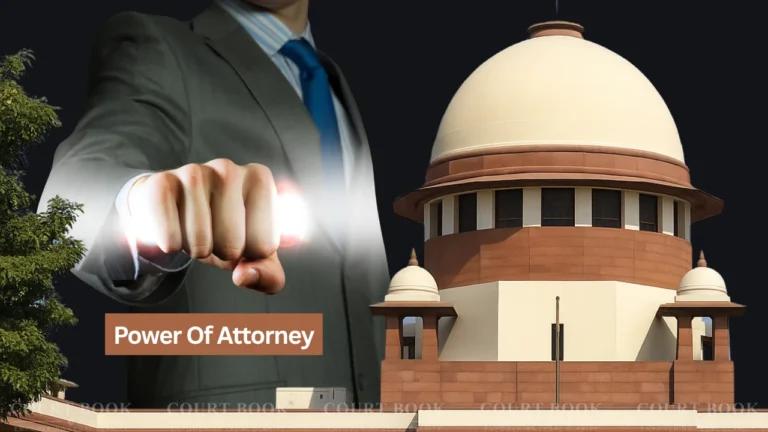On July 15, 2025, the Indian Supreme Court referred an important legal issue to a larger bench: whether a power of attorney (PoA) holder qualifies as a “performer” of the sale deed and whether he can present it for registration without any additional authentication, as required under the Registration Act, 1908.
A two-judge bench of Justices Sanjay Kumar and KV Vishwanathan diverged from the earlier judgment in Rajni Tandon vs Dulal Ranjan Ghosh Dastidar (2009), which held that the power of attorney holder, by signing the sale deed, automatically becomes the executor and need not satisfy the authentication requirements under Sections 32 and 33 of the Act.
Read also: CSR Fund Scam: Supreme Court Dismisses Plea Against Exclusion of Retired Kerala HC Judge from FIR
“With all due respect to the learned judges who delivered the judgment in Rajni Tandon, we do not agree with this view. A power of attorney holder executes a document… not in his own name, but in the name of his principal… Thus, he does not become the ‘executor’ of the sale deed,” the Supreme Court observed.
Background of the case
The case revolved around three sale deeds presented for registration by G. Rajendra Kumar on behalf of Ranvir Singh and Gyanu Bai. He later refused to authorise Kumar, raising concerns about the validity of the power of attorney dated 15.10.1990 and the related sale deeds.
The trial court had initially raised the question as to whether the power of attorney and the sale deeds executed by Kumar were valid. Additional issues were decided after the High Court's review, including whether the power of attorney was authenticated as per Sections 32(c), 33, 34 and 35 of the Act.
Read also: SC Declines PIL on Fraudulent Loan Practices; Says ‘Go to RBI’
In the Rajni Tandon case, it was held that if the power of attorney holder signs and presents the sale deed, it would not fall under Section 32(c), hence authentication under Section 33 is not required. However, the present bench disagreed with this interpretation.
The bench highlighted that merely signing a document on behalf of the principal does not give the power of attorney holder the status of "performer".
“Therefore, such an agent would continue to fall within Section 32(c)… and would necessarily have to fulfil the requirements of Sections 32(c), 33, 34 and 35 of the Act,” the court said.
The judges emphasised that most general power of attorney deeds contain clear clauses authorising the agent to both execute and present the sale documents for registration.
The court warned that the view expressed in the Rajni Tandon case could allow abuse in property transactions:
Read also: NEET-UG 2025: Students Affected by Power Cuts in Madhya Pradesh Move Supreme Court for Re-Exam
“The mere mechanical act of presenting a document… would be subject to scrutiny, but the more important act of executing a document transferring ownership… immediately comes under scrutiny,” the bench said.
The bench also pointed out that the previous judgment failed to consider Sections 34(3) and 35(2), which require the registrar to verify the identity and authority of the executor.
In the present case, the registrar was not only unable to verify the identity and authority of the executor but also to verify the identity and authority of the executor. The court was duty bound to verify not only the identity of Rajendra Kumar, but also his authority under the alleged POA.
“Giving the status of 'executor' to G. Rajendra Kumar…would be against the sale deeds,” the court concluded.
Since the present bench did not agree with the earlier coordinate bench's decision, it referred the matter to the Chief Justice for listing before an appropriate larger bench for final decision.
“We direct the Registry to obtain necessary orders from the Hon'ble Chief Justice for expeditiously listing these appeals,” the court ordered.
Case Title: G. Kalavathi Bai (Dead), per Lrs v. G. Sasikala (Dead), per Lrs & Ors.
Order Date: July 15, 2025














